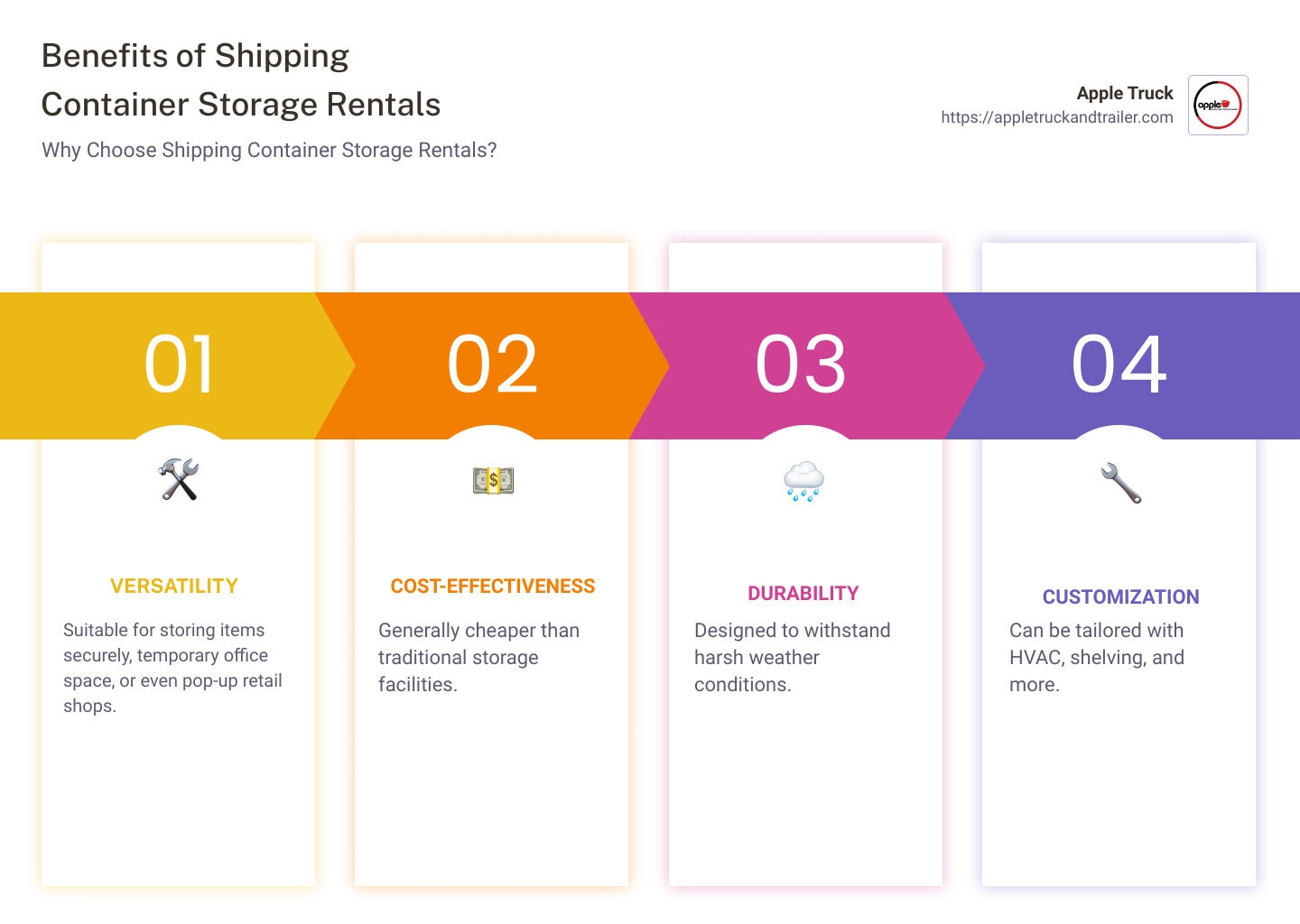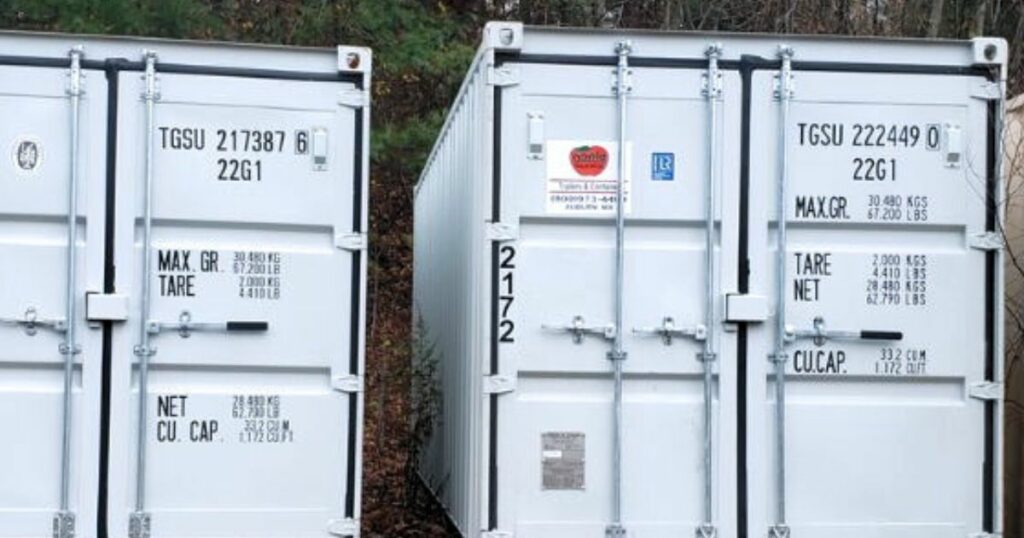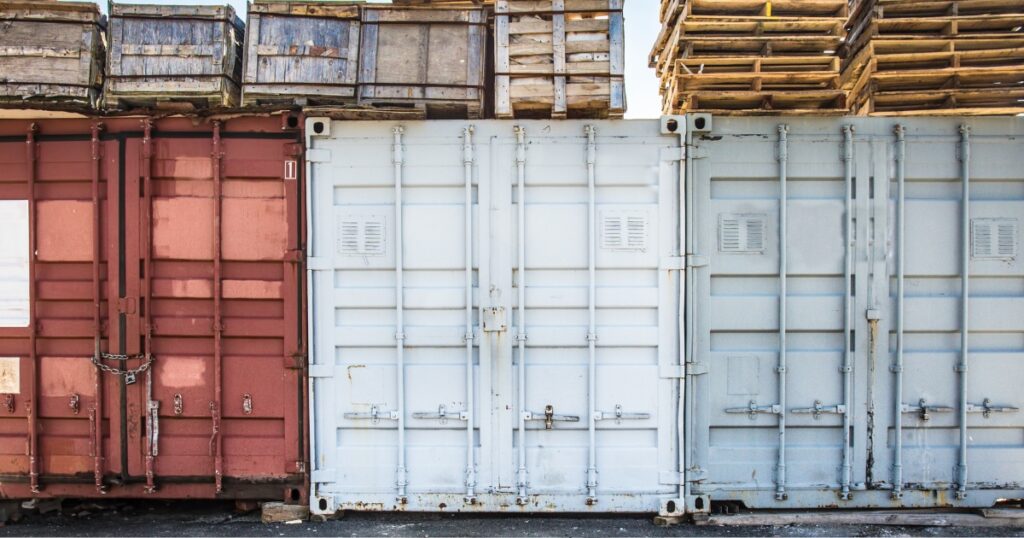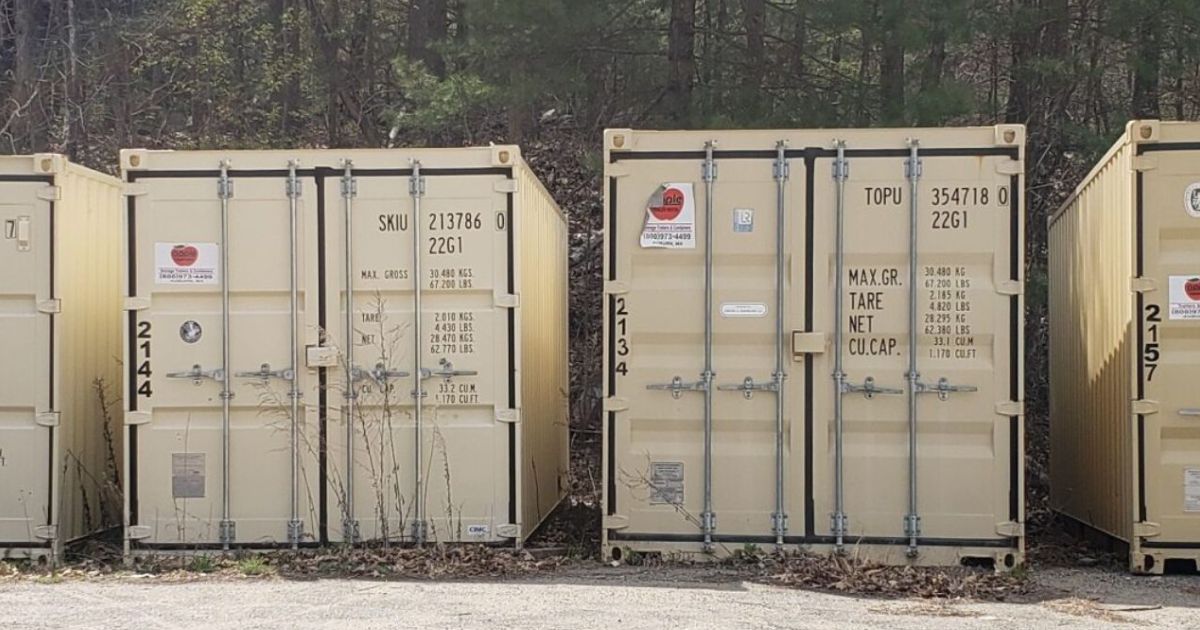Why Choose Shipping Container Storage Rentals?
Shipping container storage rental is a smart, flexible, and cost-effective solution for businesses and homeowners who need extra storage space. Here’s a quick overview of what you need to know:
- Versatility: Suitable for storing items securely, temporary office space, or even pop-up retail shops.
- Cost-Effectiveness: Generally cheaper than traditional storage facilities.
- Durability: Designed to withstand harsh weather conditions.
- Customization: Can be custom with HVAC, shelving, and more.
Shipping container storage rental can be a game-changer. Renting allows you to use containers only when you need them, which is perfect for seasonal needs or short-term projects. Well-maintained containers can last over 25 years, adding long-term value. Excellent customer service enhances the overall experience for customers, ensuring satisfaction and creating lasting positive impressions. These versatile units can be quickly deployed and customized to meet a wide range of needs, from on-site storage to mobile offices.
I’m Michael Sensano, Sales Manager at Apple Truck and Trailer. With a degree in Mechanical Engineering and over a decade of experience in the truck and trailer industry, I’ve guided countless clients in choosing the right storage solutions.

Table of Contents
What is a Shipping Container Storage Rental?
A shipping container storage rental is a temporary solution for storing items in a secure, durable, and customizable container. These containers are typically made of steel and come in various sizes to fit different needs.
Definition
A shipping container storage rental involves renting a large, steel container to store items for a specified period. These containers are weather-resistant, lockable, and can be modified with additional features like HVAC, shelving, and electricity.
Uses
Shipping containers are incredibly versatile. Here are some common uses:
- Storage: Ideal for both residential and commercial storage needs. Whether you need to store seasonal items, tools, or inventory, a shipping container provides a secure space.
- Temporary Office Space: Many businesses use these containers as temporary offices on construction sites or during renovations.
- Retail: Pop-up shops and mobile retail units can be set up using shipping containers.
- Specialized Uses: From classrooms to emergency shelters, the possibilities are endless.
Types
Shipping container storage rentals come in various types to meet different needs:
- 20-Foot Containers: These are the most common and versatile. They offer ample space for most storage needs.
- 40-Foot Containers: Ideal for larger storage requirements. They provide double the space of 20-foot containers.
- High-Cube Containers: These are similar to 40-foot containers but offer extra height, making them perfect for storing taller items.
- Specialized Containers: These can be customized with features like refrigeration, HVAC, and more to meet specific needs.
Real-World Example
Nancy S., a customer of Apple Truck & Trailer, shared her experience: “When I called and said I needed a container ASAP, they arrived at my house the next morning with a very clean and practically new container. All of my dealings with this company have been top-notch professional.”
Shipping container storage rentals offer a flexible, durable, and cost-effective solution for various storage needs. Whether you are looking for a temporary office, extra storage, or a pop-up retail space, these containers can be customized to meet your requirements.
Benefits of Shipping Container Storage Rentals

Flexibility
One of the biggest advantages of shipping container storage rentals is their flexibility. These containers can be used for a wide range of purposes:
- Storage: Perfect for both residential and commercial needs. Store seasonal items, tools, or excess inventory securely.
- Temporary Office Space: Ideal for construction sites or during renovations.
- Retail: Great for pop-up shops and mobile retail units.
- Specialized Uses: From classrooms to emergency shelters, the possibilities are endless.
Nancy S., a customer of Apple Truck & Trailer, shared her experience: “When I called and said I needed a container ASAP, they arrived at my house the next morning with a very clean and practically new container. All of my dealings with this company have been top-notch professional.”
Durability
Most shipping containers are made of heavy-duty steel, making them incredibly durable. They are designed to withstand harsh weather conditions and frequent transportation. Here are some key features:
- Steel Construction: Provides maximum durability and security.
- Weather-Resistant: Wind and watertight, perfect for any climate.
- High Resale Value: Due to their durability, these containers maintain a high resale value.
In fact, storage containers are so durable, they are used in training for firefighters.
Cost-Effectiveness
Shipping container storage rentals are a budget-friendly option for many. Here’s why:
- Affordable Pricing: You can expect to rent a container for a fraction of the cost of building new storage space.
- Rental Flexibility: Rent containers for short or long-term needs, which is cost-effective for seasonal or temporary storage.
- High Resale Value: Should you decide to purchase, well-maintained containers can last over 25 years and have a high resale value.
Customization
Shipping containers can be customized to meet specific needs, making them extremely versatile. Common modifications include:
- AC/Heating
- Refrigeration
- Electricity
- Sinks and Running Water
- Shelving
- Drains
- Doors
- Ventilation
- Furniture
- Hardwood and Carpet Flooring
These modifications allow for a wide range of applications, from retail spaces to specialized storage and beyond.
Whether you need a simple storage solution or a fully customized space, shipping container storage rentals offer unparalleled flexibility, durability, cost-effectiveness, and customization options to meet your needs.
Types of Shipping Container Storage Rentals

When it comes to shipping container storage rentals, there are several types available to meet different needs. Here are the most common types:
20-Foot Containers
20-foot containers are among the most popular options for storage. These containers offer a good balance between size and portability.
- Dimensions: Typically, these containers measure about 20 feet long, 8 feet wide, and 8.5 feet high.
- Uses: Ideal for residential storage, small businesses, and temporary office spaces. They can store tools, seasonal items, or small machinery.
- Cost: Generally more affordable than larger containers, making them a budget-friendly option.
40-Foot Containers
40-foot containers provide double the space of 20-foot containers, making them suitable for larger storage needs.
- Dimensions: These containers are usually 40 feet long, 8 feet wide, and 8.5 feet high.
- Uses: Perfect for commercial storage, large-scale residential projects, or as temporary office spaces on construction sites.
- Cost: While they are more expensive than 20-foot containers, they offer more storage space, which can be cost-effective for larger projects.
High-Cube Containers
High-cube containers are similar to standard 40-foot containers but offer extra height.
- Dimensions: Typically, these containers measure 40 feet long, 8 feet wide, and 9.5 feet high.
- Uses: Ideal for storing taller items or creating more spacious temporary offices or retail spaces.
- Cost: Slightly more expensive than standard 40-foot containers due to the additional height, but worth it for the extra space.
Specialized Containers
Specialized containers are modified to serve specific purposes beyond standard storage.
- Types:
- Refrigerated Containers: For storing perishable goods.
- Office Containers: Equipped with electricity, HVAC, and office furniture.
- Retail Containers: Customized for pop-up shops or mobile retail units.
- Classroom Containers: Modified to serve as temporary educational spaces.
- Uses: These containers can be used for unique applications, such as emergency shelters, mobile clinics, or specialized retail spaces.
- Cost: The price varies based on the level of customization and specific features required.
Each type of shipping container storage rental offers unique benefits to meet a variety of storage and operational needs. Whether you need a simple storage solution or a fully customized space, Apple Truck & Trailer has the right container for you.
How to Choose the Right Shipping Container Storage Rental
Choosing the right shipping container storage rental can make or break your storage project. Here’s how to steer the key considerations:
Size Considerations
First, determine the size you need. The most common sizes are:
- 20-Foot Containers: Ideal for small to medium storage needs. Think residential items, tools, or seasonal equipment.
- 40-Foot Containers: Perfect for larger projects, commercial storage, or construction sites.
- High-Cube Containers: These offer extra height (9.5 feet) compared to standard containers (8.5 feet), useful for taller items or creating more spacious environments.
Pro Tip: Always measure your storage space and items to ensure you select the right container size.
Condition
The condition of the container is crucial. Containers come in different grades:
- New (One-Trip): These are almost brand new, having made just one trip from the manufacturer. They are in top condition but pricier.
- Used (Cargo-Worthy): These have been used but are still in good condition. They offer a balance between cost and quality.
- Wind and Watertight (WWT): These containers might have cosmetic wear but are still sealed and secure against the elements.
Pro Tip: Inspect the container if possible. Check for rust, dents, and the condition of doors and seals.
Modifications
One of the biggest advantages of storage containers is their customization potential. Depending on your needs, you might want:
- AC/Heating: For temperature-sensitive items.
- Refrigeration: For perishable goods.
- Electricity: For lighting or running equipment.
- Sinks and Running Water: For office or retail uses.
- Shelving and Furniture: To maximize storage space or create a functional workspace.
Pro Tip: Plan ahead. Custom modifications can take time, so factor this into your timeline.
Budget
Finally, consider your budget. Prices vary based on size, condition, and modifications:
- Basic 20-Foot Containers: Typically range from $1,000 to $3,000.
- 40-Foot Containers: Can cost between $2,000 and $6,000.
- High-Cube and Specialized Containers: Generally more expensive due to additional features.
Pro Tip: Renting can be a cost-effective short-term solution, while buying might be better for long-term needs.
By keeping these factors in mind, you can find the perfect shipping container storage rental to meet your needs. Whether you require a simple storage solution or a custom-built office, Apple Truck & Trailer has you covered.
Cost of Shipping Container Storage Rentals

When considering a shipping container storage rental, understanding the costs involved is crucial. Here’s a breakdown of what you can expect:
Average Rental Costs
The cost to rent a shipping container can vary based on size, condition, and location. Here are some average prices:
- 20-Foot Containers: Typically range from $75 to $100 per month.
- 40-Foot Containers: Cost around $100 to $150 per month.
- High-Cube Containers: Slightly more expensive, averaging $125 to $175 per month.
Pro Tip: Rental rates can fluctuate based on demand and supply, especially post-pandemic. Always check current rates.
Factors Affecting Price
Several factors can influence the cost of your shipping container storage rental:
- Size: Larger containers cost more. A 40-foot container will be pricier than a 20-foot one.
- Condition: New or premium containers cost more than used ones. For example, a new 20-foot container might cost $5,000-$6,000, while a used one could be $1,200-$2,500.
- Location: Delivery distance can affect price. Renting in a high-demand area may also be more expensive.
- Duration: Long-term rentals may come with discounts. Renting for a year can be cheaper per month than a short-term rental.
- Modifications: Custom features like AC, electricity, or shelving will add to the cost.
Pro Tip: Always get multiple quotes to ensure you’re getting the best deal.
Additional Fees
Be aware of extra costs that can add up:
- Delivery Fees: Typically range from $99 to $150, depending on distance.
- Deposit and Security Fees: Usually required upfront, often equal to one month’s rent.
- Insurance: Costs can vary widely, from $10 to $450 per month, based on coverage.
- Final Pickup: Similar to delivery fees, expect around $99 to $150 for container removal.
- Interest Fees: Rare but possible, especially for rent-to-own agreements.
Pro Tip: Clarify all fees upfront to avoid surprises.
By understanding these costs and factors, you can budget effectively for your shipping container storage rental. Whether you need a short-term storage solution or a long-term investment, knowing what to expect helps you make the best decision.
Next, we’ll discuss the delivery and setup process to ensure a smooth experience with your shipping container storage rental.
Delivery and Setup of Shipping Container Storage Rentals
Once you’ve decided on a shipping container storage rental, the next step is getting it delivered and set up. Here’s what you need to know for a smooth and hassle-free experience.
Delivery Process
The delivery process for your shipping container storage rental is straightforward but requires some planning:
- Choose a Delivery Date: Coordinate with the rental company to pick a date that works best for you. That delivery times can vary, especially during peak seasons.
- Prepare the Site: Ensure the delivery location is accessible and ready. The site should be level and free from obstructions like low-hanging branches or power lines.
- Delivery: A truck will deliver the container to your specified location. Most companies use tilt-bed trucks, which allow the container to slide off the back and onto the site.
- Placement: Work with the delivery driver to position the container exactly where you need it. Once it’s on the ground, moving it can be difficult and costly.
Setup Requirements
Setting up your shipping container storage rental involves a few key steps:
- Foundation: While containers are designed to sit on various surfaces, a solid foundation prolongs their lifespan. Concrete pads, gravel beds, or railroad ties are common choices.
- Leveling: Ensure the container is level to prevent issues with the doors and structural integrity. Use a spirit level and adjust as needed.
- Security: Secure your container with high-quality locks. Some containers come with lockboxes or other security features to deter theft.
- Ventilation: If your container will store items sensitive to temperature or humidity, consider adding vents or climate control features like AC or heating.
Tips for Smooth Delivery
To ensure a seamless delivery and setup of your shipping container storage rental, follow these tips:
- Measure Access Points: Confirm that the delivery truck can access your site. Check for narrow roads, tight turns, or low bridges that might hinder delivery.
- Clear Communication: Keep in touch with the rental company. Provide detailed instructions and be available on the delivery day to guide the driver.
- Permit Check: Some areas require permits for placing a shipping container. Check local regulations to avoid fines or delays.
- Weather Watch: Schedule delivery during good weather. Rain or snow can complicate the process and make site preparation difficult.
- Site Preparation: Spend time preparing the site before delivery. A well-prepared site saves time and reduces the risk of complications.
By following these steps and tips, you can ensure a smooth delivery and setup process for your shipping container storage rental. This preparation will help you make the most of your rental, whether it’s for short-term storage or a long-term solution.
Next, we’ll explore the pros and cons of renting versus buying a shipping container to help you decide which option is best for you.
Renting vs. Buying a Shipping Container
Choosing between renting and buying a shipping container depends on your specific needs, budget, and long-term plans. Let’s break down the pros and cons, cost comparison, and considerations for both options.
Pros and Cons
Renting a Shipping Container
Pros:
- Flexibility: Renting allows you to use the container for as long or as short a period as you need. It’s perfect for temporary storage solutions.
- Lower Upfront Costs: You don’t need to make a large initial investment. Monthly rental fees are more manageable.
- Maintenance: The rental company usually handles maintenance and repairs, saving you time and money.
Cons:
- Ongoing Costs: Over time, rental fees can add up, potentially making renting more expensive than buying.
- Limited Customization: While you can add some modifications, extensive customizations might not be allowed on a rental unit.
Buying a Shipping Container
Pros:
- Long-Term Savings: If you need a container for an extended period, buying can be more cost-effective than renting.
- Full Control: You can modify and customize the container as you see fit, adding features like AC, heating, or shelving.
- Asset Ownership: The container becomes a tangible asset that you can sell later if you no longer need it.
Cons:
- Higher Initial Cost: Buying requires a significant upfront investment, which might not be feasible for everyone.
- Maintenance Responsibility: As the owner, you’ll be responsible for any repairs and maintenance, adding to the overall cost.
Cost Comparison
Renting Costs:
- Monthly Fees: Rental fees typically range from $100 to $200 per month, depending on the size and condition of the container.
- Additional Fees: There may be delivery, pickup, and setup fees, which can vary by location and company.
Buying Costs:
- Purchase Price: A new or well-maintained used container can cost between $1,000 and $6,000, depending on size and features.
- Customization and Setup: Adding custom features and preparing the site can add to the initial cost.
- Maintenance: Budget for ongoing maintenance and potential repairs over the container’s lifespan.
Long-Term vs. Short-Term Needs
Short-Term Needs:
- Renting is ideal for short-term projects like construction, seasonal storage, or temporary office space. It offers flexibility without a long-term commitment.
Long-Term Needs:
- Buying makes more sense for long-term storage solutions, permanent office spaces, or extensive modifications. The initial investment pays off over time, and you have the freedom to customize the container fully.
Case Study: Local Business in Fort Wayne
A local retail business in Fort Wayne needed extra storage during the holiday season. They opted to rent a shipping container for three months. The flexibility allowed them to manage increased inventory without a significant upfront cost. The rental company handled delivery and setup, ensuring a hassle-free experience.
In contrast, a nearby farm decided to buy a shipping container for long-term equipment storage. They customized it with shelving and climate control to protect sensitive machinery. Over five years, the investment proved cost-effective compared to ongoing rental fees.
Conclusion
In summary, shipping container storage rentals offer a versatile and cost-effective solution for both residential and commercial storage needs. These containers are available in various sizes, such as 20-foot and 40-foot options, and can be customized to fit specific requirements. Renting a shipping container provides flexibility, durability, and the ability to store items securely on-site or at a remote location.
Contact us today at Apple Truck and Trailer, we pride ourselves on offering top-notch service and a wide selection of storage containers. Our commitment to customer satisfaction ensures that you receive the best possible experience, whether you are renting a container for a short-term project or considering a rent-to-own option for long-term storage.
Here’s a quick recap of why renting a shipping container from us is a smart choice:
- Flexibility: Choose from a range of container sizes to match your storage needs.
- Cost-Effectiveness: Affordable monthly rental fees and rent-to-own options make it easy to manage your budget.
- Customization: Modify your container with features like climate control, shelving, and improved security.
- Professional Service: Our team handles delivery, setup, and any necessary modifications to ensure a seamless process.
If you’re ready to explore shipping container storage rentals and find the perfect solution for your needs, visit our Storage Container Rental page or contact us directly. We’re here to help you every step of the way, ensuring your storage experience is hassle-free and custom to your unique requirements.
Thank you for choosing Apple Truck and Trailer for your storage needs. We look forward to serving you!
Frequently Asked Questions about Shipping Container Storage Rentals
What are the typical sizes available for shipping container storage rentals?
Shipping container storage rentals come in various sizes to fit different needs. The most common sizes include:
- 20-foot containers: These provide approximately 1,170 cubic feet of space. Ideal for smaller storage needs, they are often used for residential moves or small business storage.
- 40-foot containers: Offering around 2,385 cubic feet, these containers are perfect for larger storage needs. They are commonly used for commercial purposes or storing large quantities of goods.
- High-cube containers: These are available in both 20-foot and 40-foot lengths but are a foot taller (9.5 feet high) than standard containers. They offer extra vertical space, which is useful for storing tall items or stacking boxes higher.
Note: Sizes may vary slightly between suppliers, but these dimensions are generally industry-standard.
How much does it cost to rent a shipping container for storage?
The cost of renting a shipping container for storage can vary based on several factors such as size, location, and rental duration. Here’s a general breakdown:
- Monthly rental fees: Typically range from $75 to $200 depending on the container size and condition.
- Delivery and pickup fees: These can add an extra $100 to $500 depending on the distance and the rental company’s policies.
- Security deposit: Often required upfront, usually ranging from $100 to $500.
Example: In Fort Wayne, Indiana, renting a 20-foot container might cost around $100 per month, plus delivery and pickup fees.
Can I customize my shipping container rental?
Yes, you can customize your shipping container rental to suit your specific needs. Common modifications include:
- AC/Heating: For climate control, especially if storing temperature-sensitive items.
- Electricity: Adding outlets and lighting for convenience.
- Shelving: To organize and maximize storage space.
- Doors and Windows: For easier access and ventilation.
- Security Features: Improved locks and security systems to protect stored items.
Case Study: A local business in Fort Wayne customized a rented container with shelving and climate control to store seasonal retail items. The rental company managed the modifications, ensuring a smooth and custom experience.
Additional Information
For more details on shipping container storage rentals, including specific costs and customization options, you can reach out to Apple Truck and Trailer. They offer a wide range of storage solutions custom to meet your needs.
OUR CONTENT
All the information you find on our website is thoroughly researched and verified by our team of truck and trailer specialists, who bring over 40 years of experience to Auburn, Massachusetts, and the surrounding areas. At Apple Truck and Trailer, we’re all about great service and quality trailers. Ours aren’t just trailers; they’re custom solutions for your transport needs. We understand how important reliability is for your business, and we’re here to help every step. Check out our Landoll trailers, long haul transport, semi trailer trucks, semi trucks and secure storage containers for an upgrade with expert support. We’re dedicated to providing content that’s not only accurate but also meaningful and useful for our readers.

